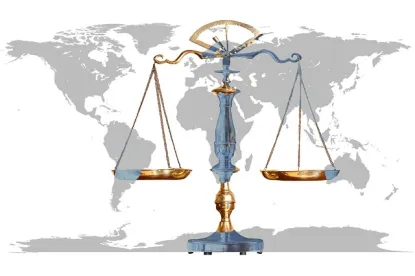A recent opinion from the U.S. District Court for the Southern District of California may help plaintiffs facing the difficulties related to serving foreign defendants, especially in light of challenges caused by the current pandemic.
Rule 4(h)(2) of the Federal Rules of Civil Procedure states that a foreign corporation may be served in any way provided for foreign individuals under Rule 4(f), except by personal delivery. Rule 4(f), in turn, provides multiple mechanisms for foreign service of process. Rules 4(f)(1) and 4(f)(2) provide several specific methods for service, including those authorized by the Hague Convention on the Service Abroad of Judicial and Extrajudicial Documents and those prescribed by the foreign country’s law for service. However, Rule 4(f)(3) is more of a catch-all; it states that service may be effected on a foreign party “by other means not prohibited by international agreement, as the court orders.” Such service can be via publication, ordinary mail to the defendant’s last known address, delivery to the defendant’s attorney, or email. Seeking a court’s approval to serve “by other means” under this rule may avoid the jurisdictional and procedural delays inherent in service under the Hague Convention or the foreign country’s legal system.
In Victaulic Company v. Allied Rubber & Gasket Co., Inc., the plaintiff was dealing with exactly these delays. Victaulic’s attempts at serving a Chinese defendant, Realflex, through the Chinese Central Authority in accordance with the Hague Convention had not been successful, requiring Victaulic to seek five extensions of its service deadline. In its motion seeking a sixth extension, Victaulic presented a statement from the Ministry of Justice for China that service of process takes more than two years to complete, with proofs of service being returned an average of 1 to 5 months after service occurs. Victaulic also included a report identifying concerns among the international law community that the Chinese Central Authority had stopped executing requests from the U.S. Further exacerbating these delays were the unavoidable complications with service in light of the current pandemic, which the court noted has “radically altered life as we know it” and required “changes to the way we must do business so that matters like this case keep moving.”
The court determined that, given the facts of this case, service under Rule 4(f)(3) was necessary. The lack of service on Realflex had caused nearly three years of stagnancy in the case. Moreover, the delay was not attributable to the Plaintiff but “rather stems from the Chinese Central Authority’s slow-walk in facilitating the request.”
Rule 4(f)(3) also requires that the method of service ordered not be prohibited by international agreement. With respect to service in China, courts have held that the Hague Convention does not prohibit service by electronic means, notwithstanding China’s objection to service by “postal channels” under Article 10(A) of the Hague Convention; notably, “postal channels,” as defined by Article 10(A), does not include service by email, online messaging systems, or other electronic means. Thus, the court authorized service by electronic means. In particular, the court required Victaulic publish notice of the suit in the electronic version of the Wall Street Journal Asia for a period of four consecutive weeks and serve Realflex by electronic mail using the email address provided on its “Contact Us” webpage.
Before such service could be effected, Victaulic voluntarily withdrew its complaint without prejudice. While the service saga for Victaulic has concluded, the court’s opinion informs litigators, especially in light of the current pandemic, factors to be considered when attempting to serve a foreign party. In certain situations, it may be more efficient to seek the court’s permission to effect service under Rule 4(f)(3), including by electronic means if possible. Furthermore, while Victaulic waited nearly three years to make this request, other parties may find success in seeking Rule 4(f)(3) relief earlier.



 />i
/>i

